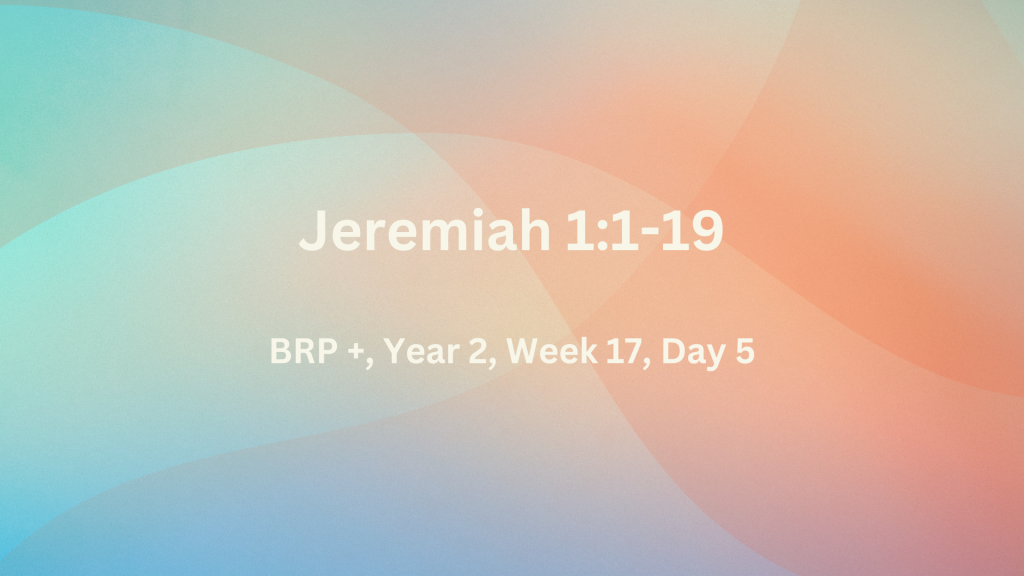Jeremiah 1:1-19
Q.1. Who was Jeremiah? During whose reigns did he minister? When was Jeremiah called to be a prophet? How did the prophet respond? What changed his perspective? What was his calling? – (Jer.1:1-10)
Jeremiah was a priest living in the tribal territory of Benjamin, about ten kilometres from the Temple in Jerusalem. The Word of the Lord came to him sometime during the revival in Josiah’s reign, and continued through the reigns of Josiah’s sons, Jehoiakim and Zedekiah – until the exile of Jerusalem in the fifth month (Jer.1:3). As well as being part of Israel’s priesthood, Jeremiah was called by God, Who said, – Before I formed you in the womb I knew you, and before you were born, I consecrated you; I have appointed you a prophet to the nations (Jer.1:5). Though we are told historically when God called him, it is significant that his call predated even his conception … as is the case with all believers (c.f. Eph.1:4). However, like Moses, Jeremiah disputed with God about his suitability, because of his lack in speaking skills, and his youthfulness (Jer.1:6 c.f. Exo.4:10; 1 Tim.4:12). God countered his arguments by assuring him – 7 Do not say, ‘I am a youth, ’because everywhere I send you, you shall go, and all that I command you, you shall speak. 8 Do not be afraid of them, for I am with you to deliver you (Jer.1:7-8). At the time of his call to be a prophet, it is recorded that – the Lord stretched out His hand and touched my mouth, and the Lord said to me – “Behold, I have put My words in your mouth” (Jer.1:9). The same happened when God called Isaiah to be His prophet (c.f. Isa.6:6-8). From the outset, Jeremiah was told that his ministry would be primarily negative, as the Lord spelled it out – See, I have appointed you this day over the nations and over the kingdoms, to pluck up and to break down, to destroy and to overthrow, to build and to plant (Jer.1:10 c.f. Jer.1:19). We should expect no different in these Last Days (c.f. Mt.24:9-14; 1 Tim.4:1; 2 Tim.3:1-5; 2 Pet.3:3-10; Jude 1:17-23).
Q.2. What did his first visions signify? Why was God about to judge His people? How would this judgment be expressed? How did God overcome the prophet’s reluctance to speak God’s message? – (Jer.1:11-19)
Even as the almond tree blossoms early, so God was illustrating that His judgment was imminent (Jer.1:11-12). The boiling pot also indicated that the Babylonians from the northern kingdom were ready to strike against Jerusalem and Judah (Jer.1:13-15). The reason why judgment was about to fall, was because of – all their wickedness whereby they have forsaken Me and have offered sacrifices to other gods and worshiped the works of their own hands (Jer.1:16). Babylon would attack the cities of Judah, including the great fortress of Jerusalem (Jer.1:15). Jeremiah had the unenviable task of exposing the sins of the king, the princes, the people, and even the priests of whom he had been a part (Jer.1:18). Nevertheless, he was not to be afraid of them, because – they will fight against you, they will not overcome you, for I am with you to deliver you,” declares the Lord (Jer.1:19).

